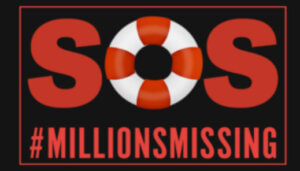Last week, Dr. Mark Porter wrote an article in The Times under the headline, “Treatment for chronic fatigue syndrome is a complicated matter.” The following comments are intended as constructive criticism of that article, with the hope that they will help to further understanding of the issues he raised.
Although I have focussed on my concerns, it should not be overlooked that there were also some positive aspects to Dr. Porter’s article, such as his appreciation of the need to conduct appropriate tests to ensure that other diagnoses have not been overlooked, and his recognition (albeit guarded) that pacing is the best management strategy for people with ME. I also felt that Dr. Porter’s article was well-intended, despite its faults, which is why I have taken the time to respond.
Dr. Porter wrote: “Few terms are as emotive as chronic fatigue. Those complaining of it often feel marginalised and labelled. Their doctors, in the absence of an easily identifiable and treatable cause, feel impotent.”
It is unclear whether Dr. Porter is referring to the symptom of chronic fatigue, which is common to many conditions, or the illness chronic fatigue syndrome (CFS) which is how some people refer to myalgic encephalomyelitis (ME). The conflation of chronic fatigue with ME has been at the heart of many of the problems with ME research and treatment. It is important to make the distinction clear.
“Scientists are wary of studying it for fear of invoking a backlash from those who disagree with their findings and conclusions.”
Again, it is unclear if Dr. Porter is talking about chronic fatigue or CFS or ME. However it is wrong to suggest that all scientists are wary of studying ME. As evidenced by the recent ME/CFS international research symposium in Australia and the forthcoming NIH Conference in the US, interest in high-quality biomedical research has never been greater.
It should also be noted that the reason why patients and scientists have criticised some research, such as the £5 million publicly funded PACE trial, is primarily because it uses bad methodology, which has resulted in the promotion of ineffective and potentially harmful treatments.
“And, as I have learnt, anyone writing on the subject needs a thick skin to cope with the feedback.”
When trying to write sympathetically about any group of people who have suffered from discrimination, it is usually advisable not to suggest that you need a thick skin to write about the subject.
“Little wonder that chronic fatigue has become an area around which everyone — with the exception of those affected — tiptoes.”
This seems to imply that everybody is very careful about what they say about ME, apart from people with ME. It is hard to equate this view with the abuse to which people with ME have been subjected in the media in recent days, and the polite and measured way in which most patients and charities have responded (see #MEAction letter to the Editor of Reuters). This coordinated campaign would appear to be an example of what Cochrane Collaboration founder Hilda Bastian referred to as the “massive effort” that some researchers have put into trying to discredit the ME community with a “collective ad hominem attack”.
It should also not be forgotten that when accusations were made about ME “activist behaviour” in a court of law by those trying to prevent the release of data from the PACE trial, the Information Commissioner ruled them to be “grossly exaggerated” (See also “A Few Words About ‘Harassment“.)
“Few things are more frustrating to a patient with suspected ME than to be subjected to a further battery of tests by a new doctor who thinks there must be another, more easily managed cause…”
This is not my experience. I would have been pleased to have tested positive for anything rather than being diagnosed with ME, and 26 years after being diagnosed I would still be delighted if I tested positive for something else. Many ME patients report frustration that their diagnosis can prevent them from being adequately tested for other conditions. What is undoubtedly true, however, is that many ME patients are not well enough to keep travelling backwards and forwards to hospitals and GP surgeries, and that the exertion of having to go for lots of tests can result in a significant worsening of their condition.
“At the end of the investigative process there will be many patients who will be left without a clear explanation, or a diagnosis such as ME.”
What Dr. Porter does not make clear is that having the symptom of chronic fatigue and excluding other possible causes is not enough to diagnose someone with CFS or ME. Indeed, both the BMJ Best Practice Guide and the US AHRQ specifically warn about the dangers of using Prof Sharpe’s discredited Oxford Criteria, which requires only 6 months unexplained fatigue. As the Guide states, post-exertional malaise (PEM, a significant and often delayed worsening of symptoms following physical or mental exertion) is the “distinguishing characteristic of the disease”.
“However, I am concerned for the future. Prominent researchers, such as Professor Michael Sharpe of Oxford University, have left the field because of what they describe as internet stalking and toxic trolling. Some ME campaigners might regard that as no loss, but it’s the impact on the next generation of scientists that worries me more. If they are put off tackling the challenge, how are we going to make progress?”
By expressing concern for his departure from ME research, Dr. Porter appears to at least partially endorse Professor Sharpe’s damaging false narrative. If Dr. Porter is concerned about the quality of Prof Sharpe’s research, which has been criticised by numerous scientists and in numerous peer-reviewed articles (see also JHP Special Edition), or the ethics of his ongoing campaign to discredit critics and patients, that was not made clear. However, nobody should be concerned if bad researchers are leaving – unless their concern is for those who will be affected by their new field of research.
Despite my criticisms, I welcome Dr. Porter’s apparent concern for patients and his interest in ME. I also appreciate how difficult it must be for all GPs to understand all the issues concerning ME given the lack of training they receive and the misinformation to which they have been subjected by the RCGP and others. I very much hope that he will continue to engage with patients, charities and respected scientists in order to further his understanding of the issues – including the desperate need for a huge increase in funding for high-quality biomedical research to develop diagnostic tests and effective treatments.
References and suggested further reading:
- Kindlon T et al (2018) The PACE Trial Controversy: a summary. The Science for ME forum. https://www.s4me.info/docs/PaceBriefing3.pdf
- Editorial: on PACE (2016). Sense about Science USA. https://senseaboutscienceusa.org/editorial-on-pace/
- #MEAction (2019). Fighting for Rigorous Science and Accurate Reporting.
https://www.meaction.net/2019/03/14/fighting-for-rigorous-science-and-accurate-reporting/ - Bastian H (2019). Consumer-Contested Evidence: Why the ME/CFS Exercise Dispute Matters So Much. PLOS blog https://blogs.plos.org/absolutely-maybe/2019/02/08/consumer-contested-evidence-why-the-me-cfs-exercise-dispute-matters-so-much/
- Faulkner G (2016) Major breakthrough on PACE trial. Centre for Welfare Reform https://www.centreforwelfarereform.org/news/major-breaktn-pace-trial/00296.html
- Tuller D (2016) Trial by Error continued: A Few Words about “Harassment”. Virology Blog. http://www.virology.ws/2016/02/01/trial-by-error-continued-a-few-words-about-harassment/
- Baraniuk J (2018). Chronic fatigue syndrome/Myalgic encephalomyelitis. BMJ Best Practice Guide: https://bestpractice.bmj.com/topics/en-gb/277
- Tuller D (2018) Trial by Error: Open Letter to The Lancet, version 3.0. Virology Blog. http://www.virology.ws/2018/08/13/trial-by-error-open-letter-to-the-lancet-version-3-0/
- Wilshere C et al (2018) Rethinking the treatment of chronic fatigue syndrome—a reanalysis and evaluation of findings from a recent major trial of graded exercise and CBT. BMC Psychology. https://bmcpsychology.biomedcentral.com/articles/10.1186/s40359-018-0218-3
- Journal of Health Psychology Special Issue: The PACE Trial (2017) https://journals.sagepub.com/toc/hpq/22/9
- #MEAction Parliamentary Briefing (2019) http://www.meaction.net/wp-content/uploads/2019/01/MEAction_UK_Parliament_Briefing_Full_Jan19.pdf






1 thought on “A response to Dr. Mark Porter’s article about ME in The Times”
Certainly agree with all your points. ME is a hell of a disease. After polio at age 6, I’ve been living with this for 66 years. It’s seen several names as you point out. Due in part to the name changes, it’s rarely taken seriously. I’ve had some very helpful and sympathetic doctors. I’ve also had horrible symptoms.
This is a terrible disease and terribly complicated.
We do indeed, have “an urgent need” for concentrated and serious funding for scientific research and treatments.
Thank you for your work.
Comments are closed.